
Water retention or fluid retention is the accumulation of excess fluids in the body. This happens when the body’s mechanisms for maintaining fluid are experiencing problems. There are many ways to remedy this condition and tweaking your diet to include the best foods for water retention is quite a good step.
But first, how do you recognize water retention? Physical signs are actually more noticeable, like swelling of extremities, puffiness, or changes in skin color. One also feels heavier than normal. Or experiences aches and tenderness in the limbs or stiffness in the joints. Another good indication of water retention is difficulty in losing weight or drastic unexplained weight gain.
Water retention can be caused by a number of factors. Standing or sitting too long, as well as airplane rides can cause it. Fluctuating hormones, menopausal, or menstruation also cause short-term water retention. It can also be an indication of other medical conditions involving other organs like the kidney, liver, or heart. Or it can also be purely genetics.
A poor diet can also cause water retention. Too much sodium is usually the big culprit here and then it can easily be enhanced by a lack of potassium-rich foods in the diet or too much carbohydrate intake. As always, a balanced diet should be your main goal to maintain a healthy body.
Knowing which are the best foods for water retention is a good first step. This way you can work out a meal plan that can both prevent water retention and still keep the overall integrity of a diet that suits your health needs.
Here is now the list along with some tips at the end on how to reduce the signs and symptoms of water retention.
Best Foods for Water Retention (With Pictures!)
Acorn squash
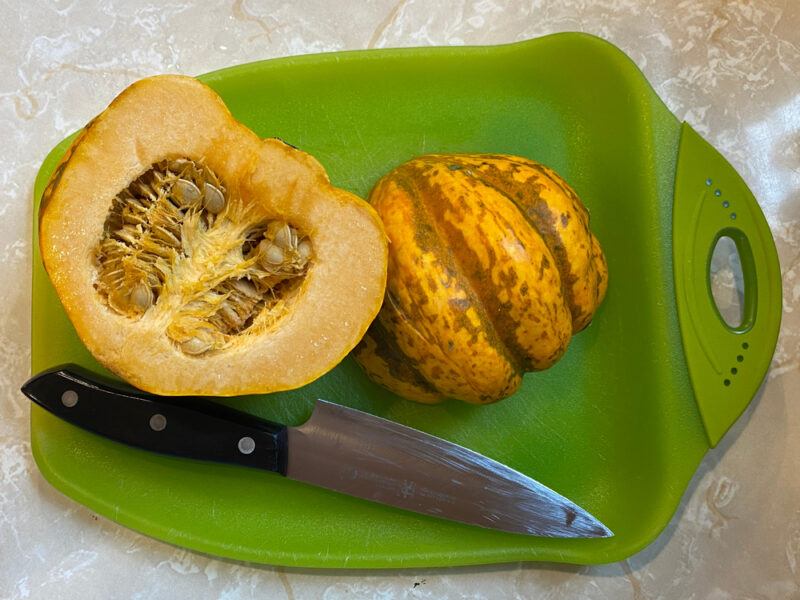
Acorn squash aside from its high fiber and vitamin C contents is also rich in potassium and magnesium. Potassium is important in maintaining fluid balance. Not only does it increase urine production but it also decreases the effects of sodium.
Apricot
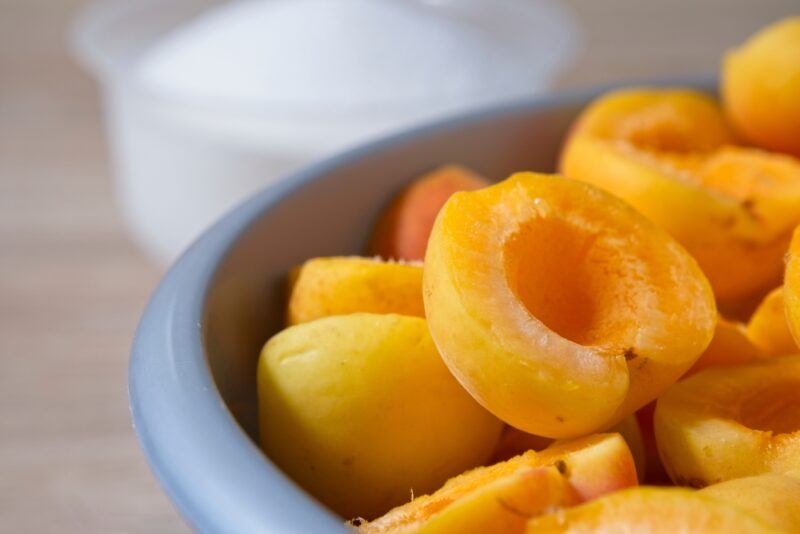
Apricot is one of the fruits that are richest in potassium. It also particularly contains high amounts of niacin and vitamins A, C, K, and E. Aside from being an integral mineral in fluid balance, potassium is also important for nerve and muscle function.
Asparagus
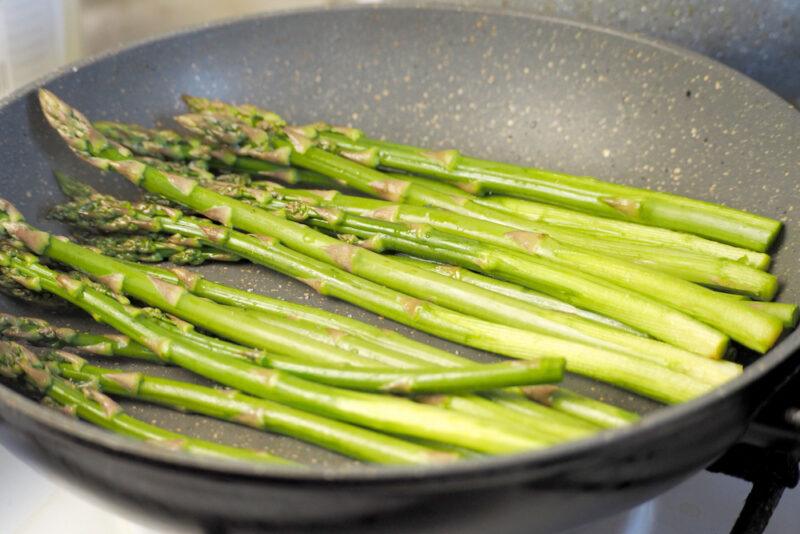
Asparagus contains diuretic properties that come from its amino acid asparagine content. It helps in getting rid of excess salt and fluid in the body. It is also particularly rich in vitamins C and E, and polyphenols which contain anti-inflammatory effects.
Bananas
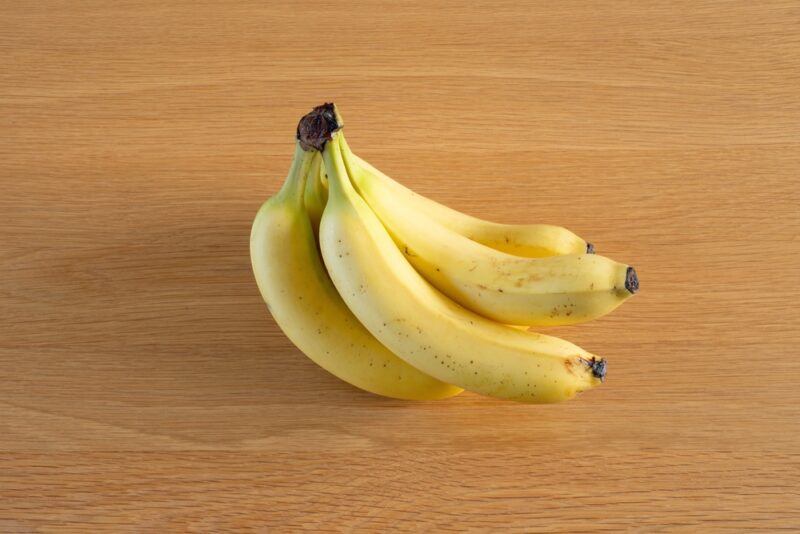
Banana is another fruit that is rich in potassium. This is particularly important if you consume too much salt because potassium will offset its effects on your body. In fact, because it’s also rich in fiber and low in sodium, it’s actually an important component of a heart-healthy diet called DASH (Dietary Approaches to Stop Hypertension).
Bell peppers
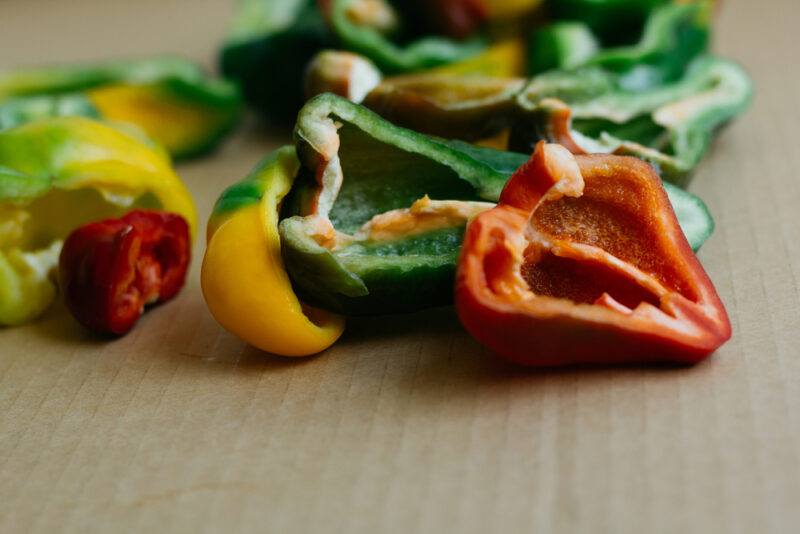
Bell peppers are 90% water, contain potassium, and are low in sodium which makes them a good diuretic that will help with water retention. Getting rid of extra body fluid also helps in reducing pressure within the blood vessels. Bell peppers are also particularly rich in vitamin C content which helps in boosting the immune system.
Berries
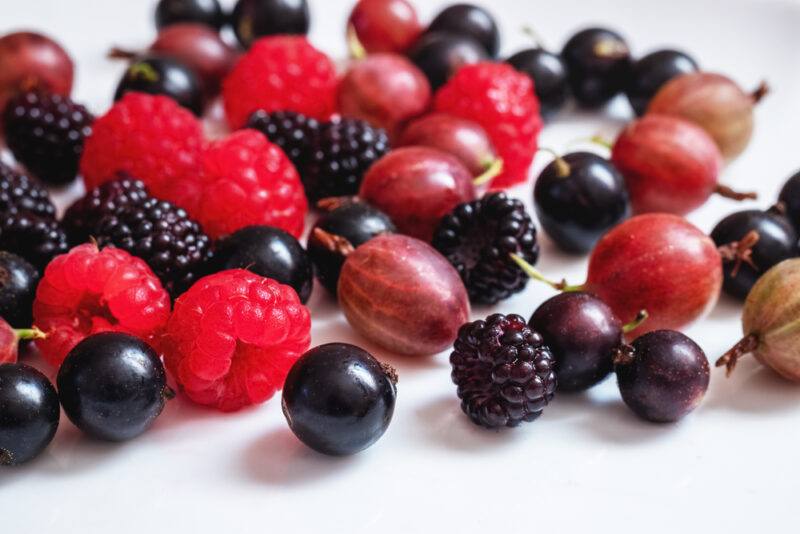
Berries are rich in fiber which not only keeps us regular but also helps in moving things around throughout our body. Meaning we absorb all the needed nutrients and eliminate waste and water to keep all other things in balance. So load up with strawberries, blueberries, raspberries, blackberries, cranberries, or whatever berry you fancy!
Brown rice
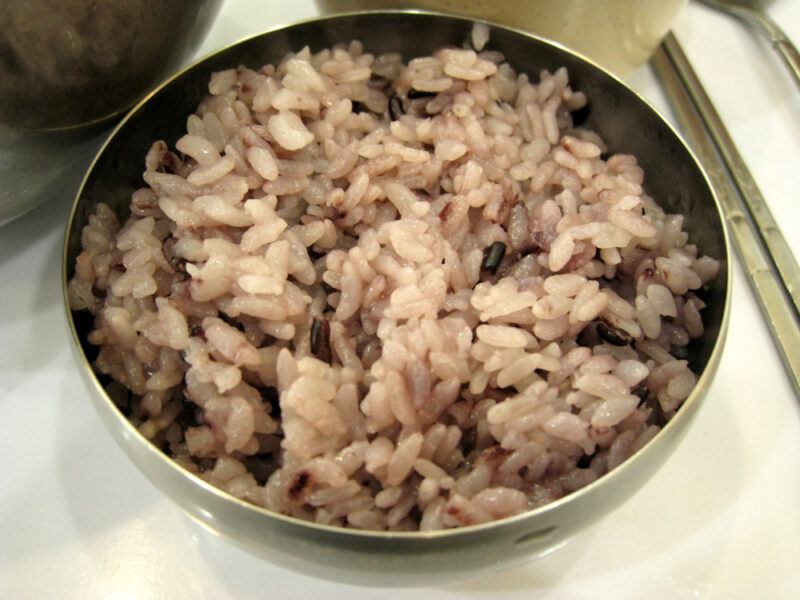
Aside from brown rice’s high fiber content, it’s also particularly rich in magnesium and vitamin B6. Researchers believe that vitamin B6 deficiency can ultimately cause water retention once it decreased the dopamine in the kidney which then results to increase sodium secretion. Bottom line, vitamin B6 is important in preventing water retention.
Brussels sprouts
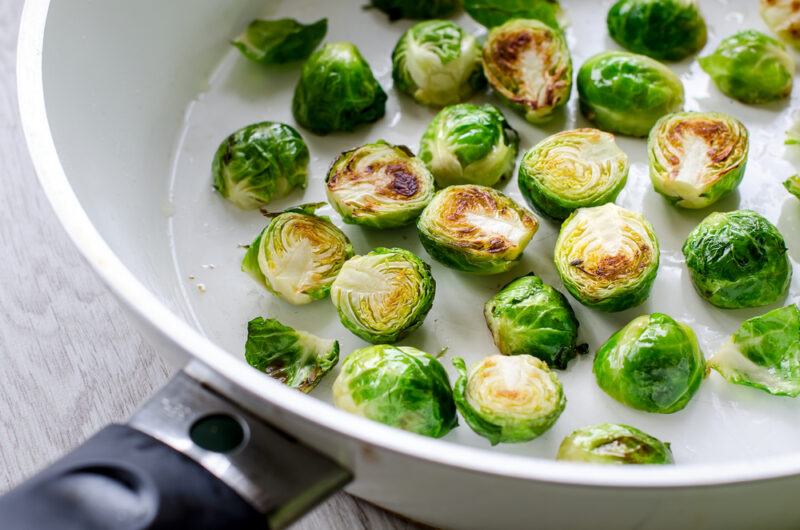
Brussels sprouts are high in potassium and low in sodium. In addition to potassium’s role in regulating fluid balance, it also helps in muscle contractions and nerve signals. Brussels sprouts are also particularly rich in vitamin K. They also have high vitamin C that acts as an antioxidant to promote tissue repair and immune functions.
Carrots
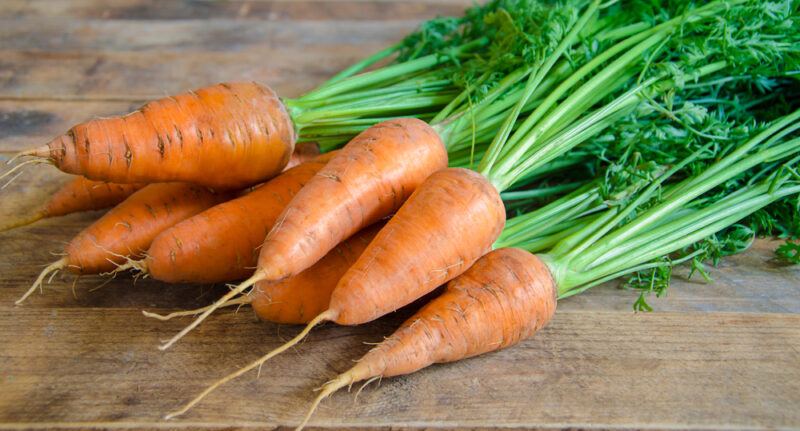
Carrots contain potassium, magnesium, and vitamin B6 which aid the body from retaining excess water. Its antioxidant contents along with the other vitamins and minerals help in detoxification which rid the body of toxins. Carrots are particularly known for their vitamin A content but it also boasts vitamin C, calcium, iron, biotin, lutein, and vitamin K1.
Cranberry juice
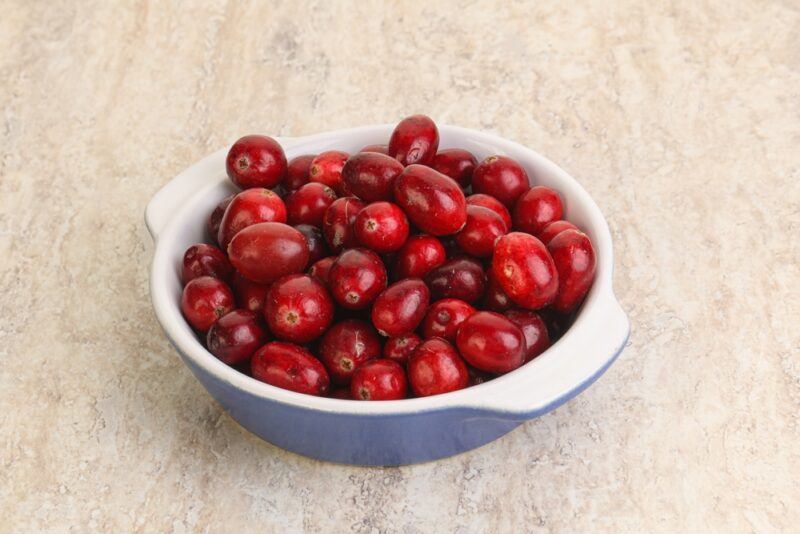
Unsweetened and pure cranberry juice is a natural diuretic. It’s rich in vitamins C and E and also contains copper, vitamin K12, and vitamin B6. Cranberry juice is mainly water so right off the bat, it’s good for rehydration. We already know vitamin B6’s role in preventing fluid retention but keep in mind that vitamin C also has natural diuretic properties.
Dark chocolate
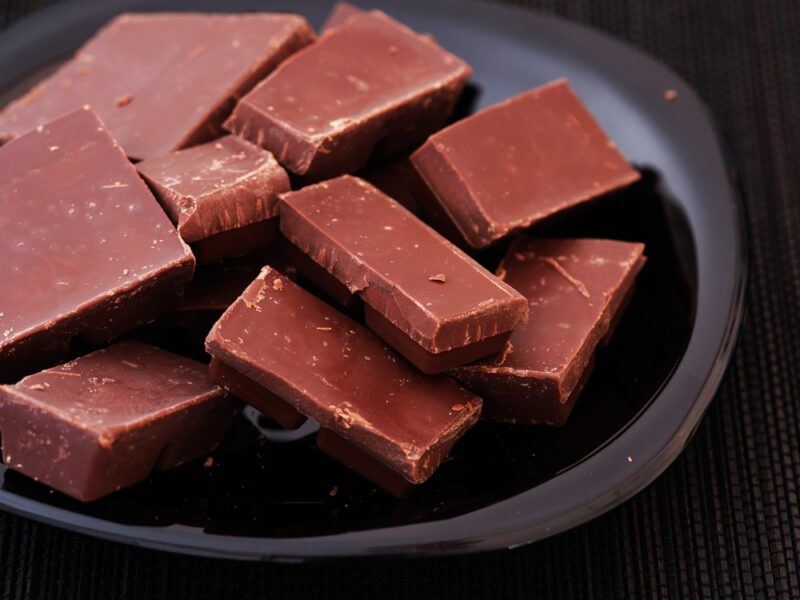
Not only do dark chocolates contain antioxidants and compounds that boost one’s mood and heart health, but it also has magnesium which helps with easing water retention by balancing excess sodium in our body. Furthermore, chocolate’s magnesium content also helps in alleviating cramps related to PMS.
Ginger
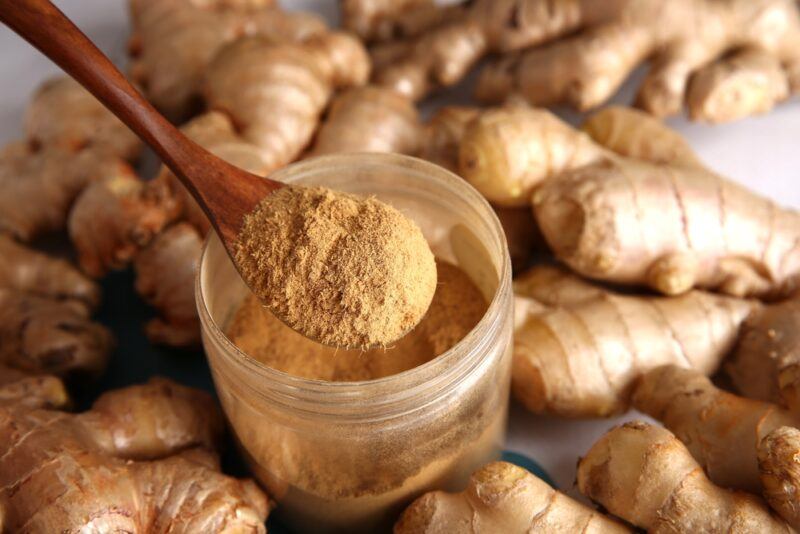
Ginger contains vitamin C, magnesium, and potassium – all three help with water retention. It’s also particularly rich in gingerol which has powerful anti-inflammatory and antioxidant properties. Ginger is also commonly used in aiding digestion, reducing nausea, and fighting flu and the common cold.
Grapefruit
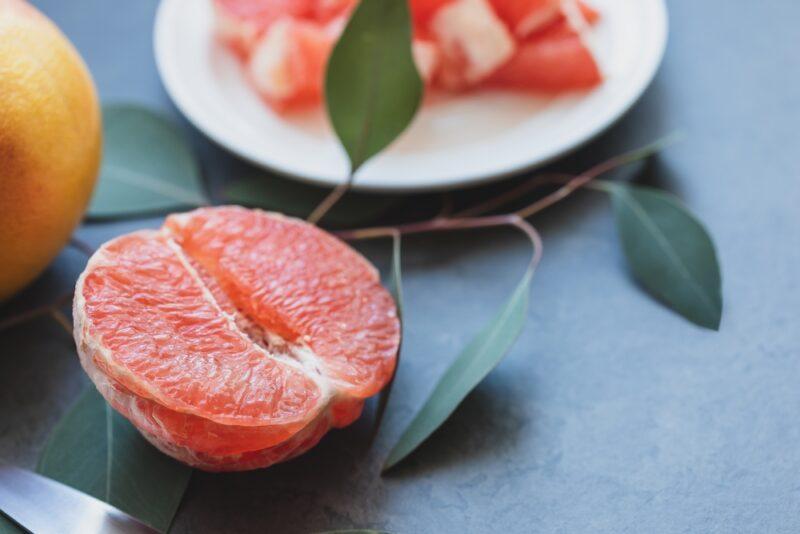
Grapefruit, aside from its high vitamin C, fiber, and antioxidant contents, is also rich in potassium. It’s also known for aiding the functions of the lymphatic system in cleaning toxins including excess water. Its fiber and water content can also help in losing weight and reducing calorie intake.
Honeydew melon
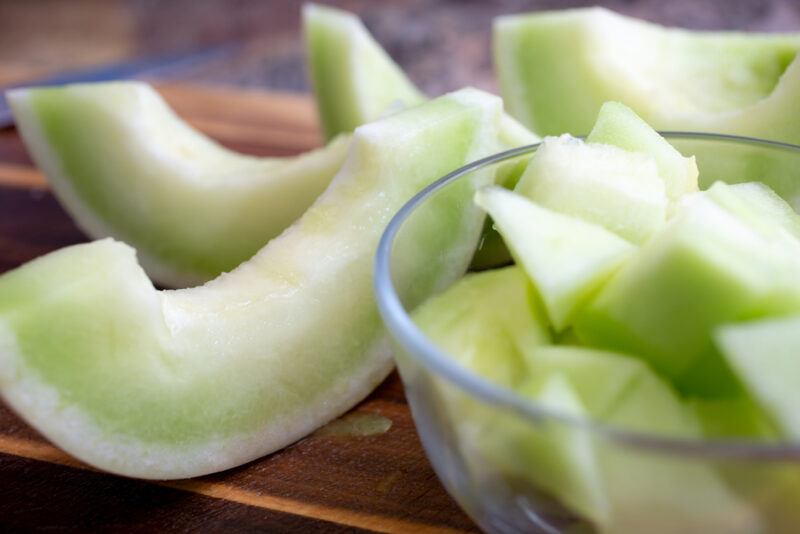
Honeydew melon is also a natural diuretic. It is mainly water and also contains potassium, magnesium, calcium, and sodium. These electrolytes are important in maintaining key functions in our body. Honeydew melon also contains vitamin C, vitamin B6, folate, and choline.
Dark leafy greens
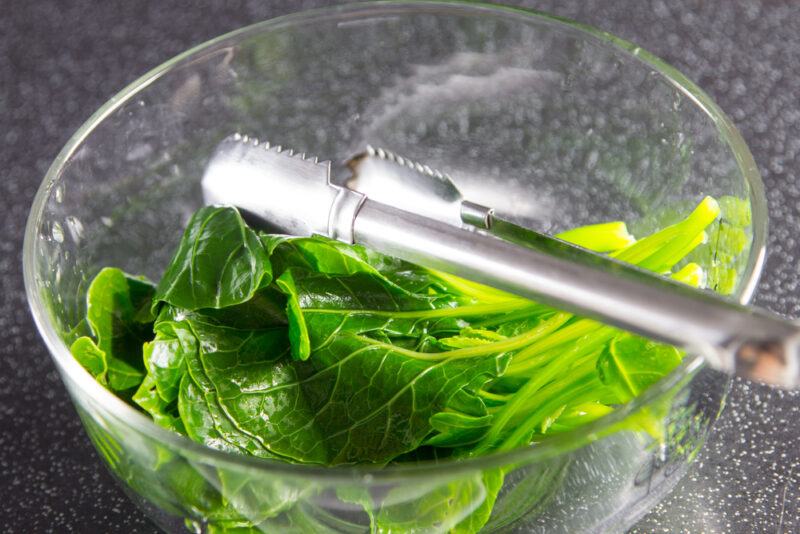
Dark leafy greens like spinach, kale, collard greens, or watercress are high in potassium content. Spinach is actually one of the richest in potassium among dark leafy greens followed by Swiss chard. Dark leafy greens are generally also rich in fiber, antioxidants, magnesium, calcium, iron, vitamin A, and vitamin C.
Lemon
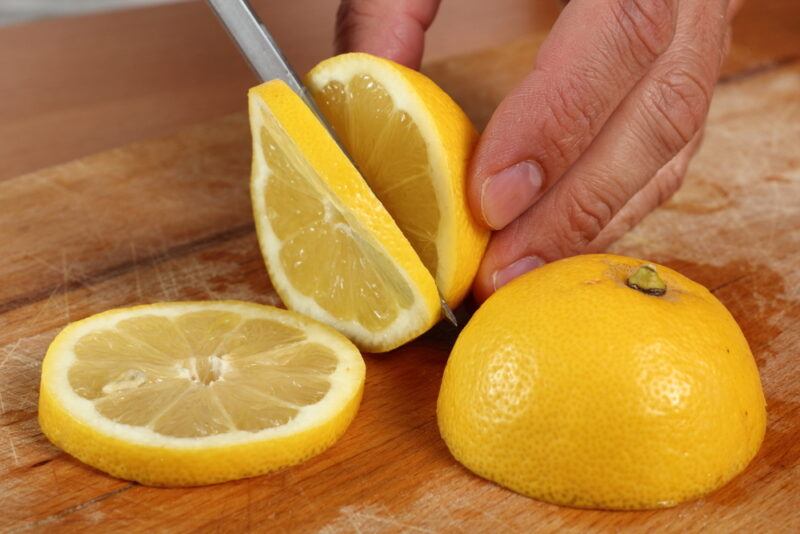
Lemon is rich in vitamin C, in fact, one lemon can very well give you more than 50% of vitamin C RDI. It also contains plant compounds that are known to help lower cholesterol. Its citric acid content not only helps in increasing the volume of urine but also in increasing the urine’s pH level which may also prevent the formation of kidney stones.
Oranges
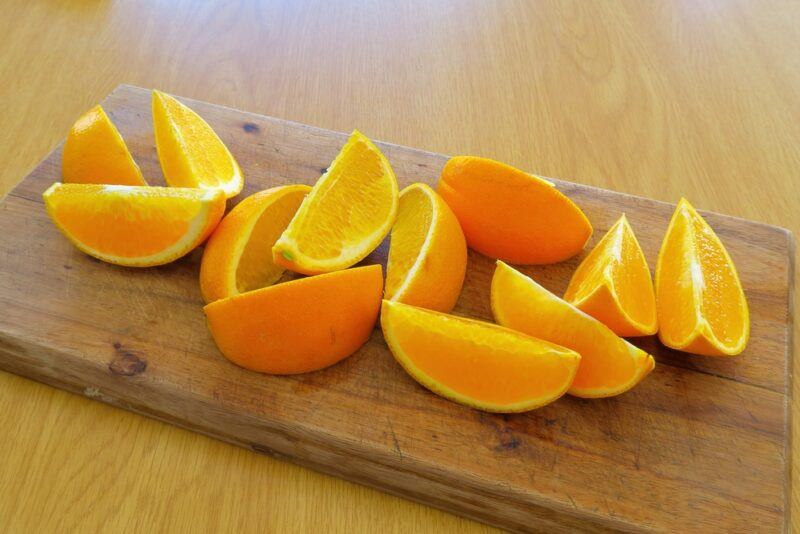
Like lemons, oranges are also a great source of vitamin C. It also contains fiber, folate, calcium, thiamine, and potassium. And since it’s also acidic like lemons, it helps in reducing too much sodium which can cause water retention.
Potatoes
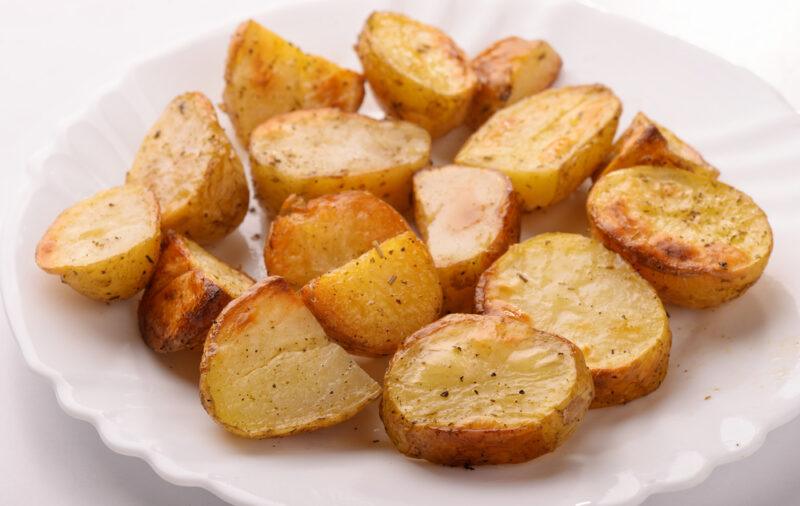
Aside from carbs, fiber, and vitamin C, potatoes also contain high vitamin B6 and potassium. This starchy root vegetable is also rich in bioactive plant compounds, mainly concentrated on its skin, that contains antioxidant properties. Potatoes are also basically very filling making them a great addition to any weight management plan.
Tomatoes
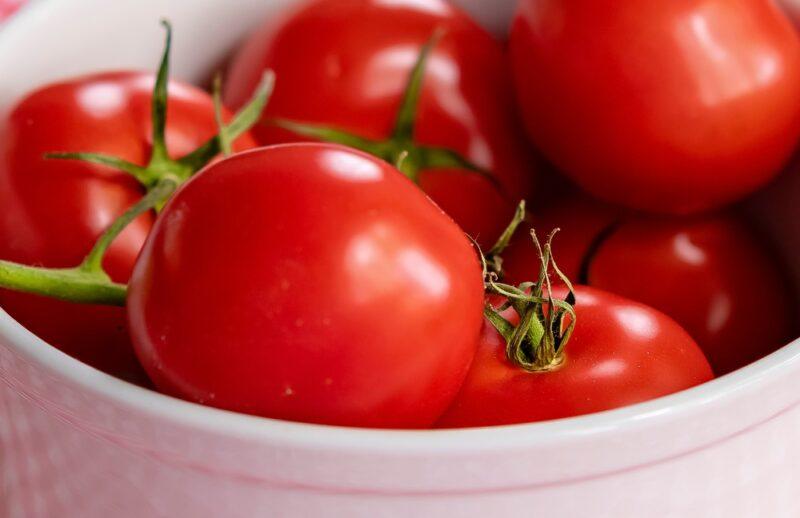
Tomatoes are one of the vegetables with a high potassium content. It’s also rich in folate, vitamin C, vitamin K, and fiber. It is also particularly known for its lycopene content which has an antioxidant function. And it doesn’t hurt that tomatoes are not only delicious, making them easy to incorporate into our diet, but they also come in so many varieties and types.
Nuts
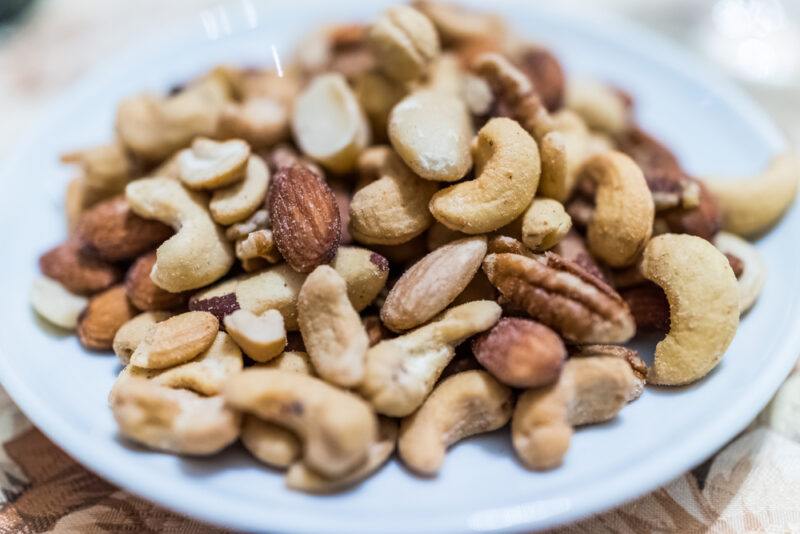
Nuts in addition to being a great source of healthy fats, vitamin E, and selenium, also contain magnesium. Certain nuts, like walnuts, are also high in vitamin B6. And we already know that vitamin B6 also plays a vital role in keeping our body from accumulating water.
How To Reduce Its Signs and Symptoms
In cases where water retention or the symptoms that come with it are quite persistent, it’s always best to consult your doctor first. For one, it may be an indication of another medical condition that you’re not aware of, or perhaps your case already needs specific medications.
However, sometimes the signs and symptoms of water retention can be remedied by maintaining a diet that includes foods that are rich in potassium and magnesium, are natural diuretics, and contains anti-inflammatory properties.
Furthermore, here are additional tips on how to reduce its signs and symptoms:
Manage salt consumption
Salt or sodium affects fluid balance. So, while it is important that you cut down your salt intake (both from processed foods or other sodium-rich foods), eliminating salt completely is not a good idea either. After all, your body needs sodium, too. Just keep in mind that too much salt or too little will both lead to imbalances in the body that can lead to fluid retention.
Exercise regularly
One more reason for you to exercise regularly (if we haven’t stressed it enough by now) is to ease water retention symptoms. Not only will regular exercise benefit your cardiovascular system but it will also help in maintaining the natural balance of body fluids. Remember that during exercise, not only do you sweat it out but your body also shifts a lot of water into your muscles.
Avoid stress
Stress increases a hormone called cortisol which leads to stress-related water retention. This hormone controls ADH which is an antidiuretic hormone that controls water balance in the body. Avoiding stress or controlling it at least, can mean normal cortisol and ADH levels which is your aim if you want to maintain a fluid balance.
Ease your carb intake
Although it is a fact that we need and use carbohydrates for energy, keep in mind that the excesses are stored in the muscles and liver as glycogen. These molecules come with water attached to them. So, the more glycogen stored would mean more water is also stored in the body. You can either cut back on your carb intake or you can increase your physical activity.
Stay hydrated
It would seem like a contradicting move, but drinking water can remedy water retention. The goal is simply to keep yourself well hydrated. If you’re dehydrated, your body will instinctively retain more water in its effort to achieve and maintain a healthy balance. So, drink up! Make sure you take more water or other drinks that will boost hydration – especially during hot weather or extreme physical activities.





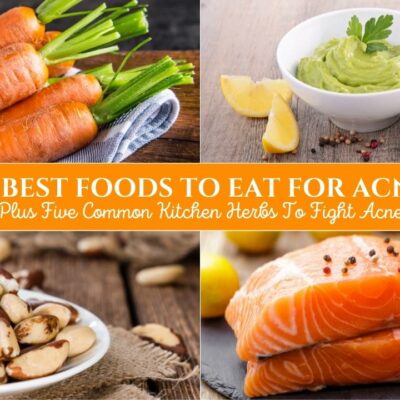

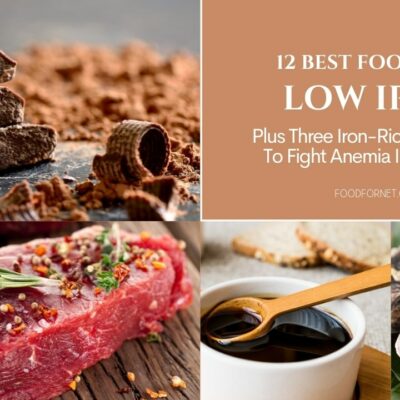


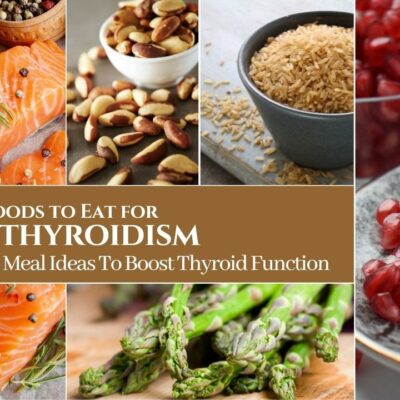






 Are Pine Nuts Good For You?
Are Pine Nuts Good For You?
Leave a Reply